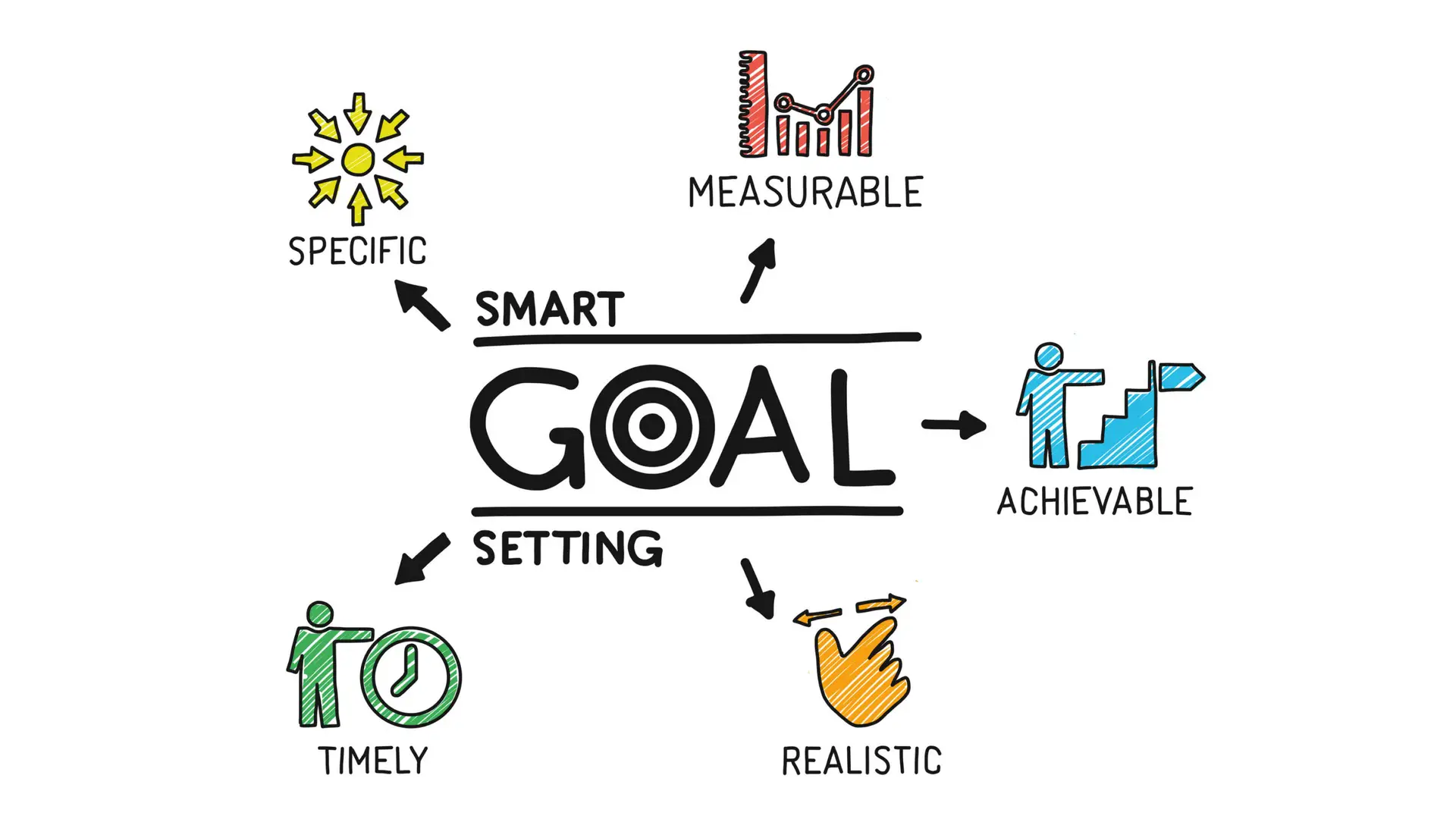Setting goals is essential for personal and professional development, but not all goals are created equal. To ensure your goals are clear, actionable, and achievable, it’s essential to use the SMART criteria. SMART goals are Specific, Measurable, Achievable, Relevant, and Time-bound, providing a structured framework to help you stay focused and motivated. In this post, we’ll break down each component of SMART goals and provide tips on how to set effective goals.
What Are SMART Goals?
SMART is an acronym that stands for:
- Specific: Clearly define your goal. What exactly do you want to achieve?
- Measurable: Determine how you will measure your progress. What metrics will you use?
- Achievable: Ensure your goal is realistic and attainable. Can you achieve this goal with your current resources and constraints?
- Relevant: Align your goal with your broader objectives. Why is this goal important to you?
- Time-bound: Set a deadline for your goal. When do you want to achieve it?
How to Set SMART Goals
- Specific: Define your goal with precision. Instead of saying, “I want to get fit,” specify, “I want to lose 10 pounds by exercising three times a week.”
- Measurable: Establish clear criteria for measuring progress. For example, track your weight loss weekly and keep a record of your exercise sessions.
- Achievable: Set a goal that is challenging but realistic. Ensure you have the necessary resources, time, and skills to achieve it.
- Relevant: Make sure your goal aligns with your overall objectives. If your overall aim is to improve your health, then losing weight is a relevant goal.
- Time-bound: Set a specific deadline for achieving your goal. For instance, aim to lose 10 pounds in three months.
Tips for Achieving SMART Goals
- Break It Down: Divide your goal into smaller tasks that are easier to manage. This will make it less overwhelming and easier to track.
- Stay Committed: Keep yourself accountable by regularly reviewing your progress and adjusting as needed.
- Seek Support: Share your goals with friends, family, or work colleagues who can provide encouragement and support.
- Celebrate Your Wins: Acknowledge and celebrate your achievements along the way to stay motivated.
Conclusion
Setting SMART goals is a powerful way to ensure your objectives are clear, actionable, and achievable. By following the SMART criteria, you can stay focused, motivated, and on track to achieving your goals. Ready to get started? Download our SMART Goals Planner here to begin setting your own SMART goals today!
Ready to Transform Your Career?
About Me
As a seasoned career coach with years of experience guiding professional women through transformative journeys, I understand the unique challenges you face. My mission is to empower you to achieve your career goals through personalised strategies and unwavering support.
Let’s Connect and Embark on This Journey Together
Your career is a canvas—let’s paint it with the vibrant colours of your ambitions and talents. Empower yourself today for the success you’ll achieve tomorrow.
Inspirational Quote
“Setting goals is the first step in turning the invisible into the visible.” — Tony Robbins
Final Thoughts
Achieving your goals isn’t just about setting them—it’s about creating a clear, actionable plan and staying committed to your journey. You have the power to turn your dreams into reality. Trust in yourself, and there’s no limit to what you can achieve.
Join the Conversation
Have you set SMART goals before? Share your experience in the comments below and let us know how it has helped you achieve your objectives!
Check out these blog articles from our Professional Skills category!





